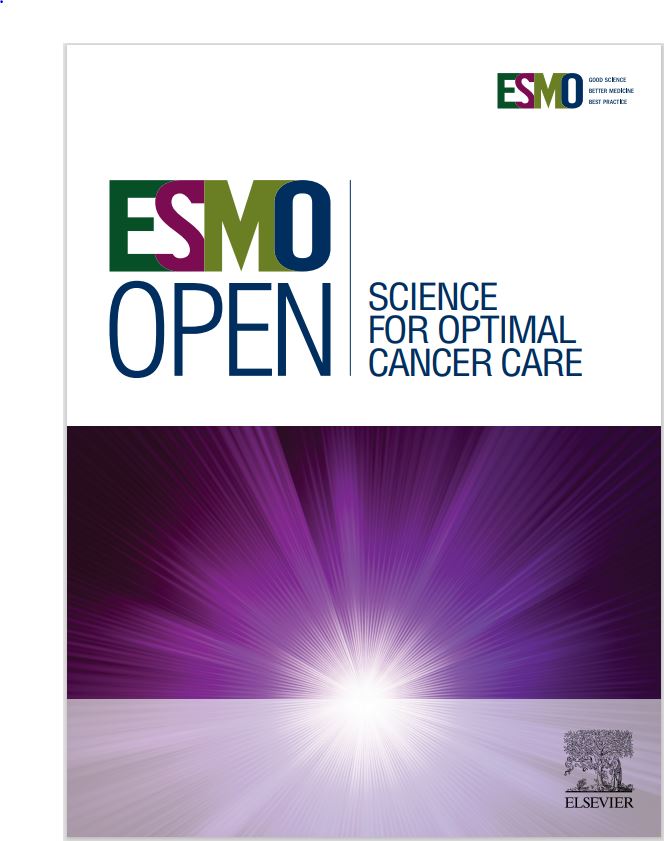Advances in individualization of systemic treatment for locoregionally advanced nasopharyngeal carcinoma: a systematic review
IF 7.1
2区 医学
Q1 ONCOLOGY
引用次数: 0
Abstract
Background
The optimal treatment strategy (radiotherapy with induction, concurrent or adjuvant chemotherapy) for patients with locoregionally advanced nasopharyngeal carcinoma (LA-NPC) remains to be addressed. Identifying biomarkers related to precise prognostic risk stratification and treatment benefits gained have been explored in recent years.
Methods
We carried out a systematic review of the published literature covering these topics. Of 3732 references screened, 26 articles were found eligible for inclusion.
Results
Regarding the issue of treatment pathway in LA-NPC, induction chemotherapy is usually preferred over adjuvant chemotherapy. It is paramount to stress patient selection to identify those cases at high risk of relapse requiring systemic intensification. Concerning a role for Epstein–Barr virus (EBV) DNA-based personalized therapy, EBV DNA and its kinetics in plasma potentially represents a robust prognostic marker after (chemo)radiotherapy, but it is necessary to standardize test and cut-off levels.
Conclusions
This systematic review provides an overview of biomarker-guided systemic treatment designed to improve prognosis, including key aspects of current guidelines, biomolecular signature aspects and potential limitations between applicability to cancer treatment in endemic regions versus non-endemic regions.
局部进展期鼻咽癌个体化全身治疗的进展:系统综述
局部区域晚期鼻咽癌(LA-NPC)患者的最佳治疗策略(放疗加诱导,同时或辅助化疗)仍有待解决。近年来,人们一直在探索与精确预后风险分层和治疗获益相关的生物标志物。方法对已发表的相关文献进行系统回顾。在筛选的3732篇文献中,发现26篇符合纳入条件。结果在LA-NPC的治疗途径问题上,诱导化疗通常优于辅助化疗。最重要的是要强调患者的选择,以确定那些复发风险高、需要全身强化的病例。关于eb病毒(EBV) DNA个体化治疗的作用,EBV DNA及其在血浆中的动力学可能是(化疗)放疗后预后的一个强有力的标志物,但有必要标准化测试和切断水平。本系统综述概述了生物标志物引导的系统性治疗,旨在改善预后,包括当前指南的关键方面,生物分子特征方面以及在癌症流行地区与非流行地区治疗适用性之间的潜在局限性。
本文章由计算机程序翻译,如有差异,请以英文原文为准。
求助全文
约1分钟内获得全文
求助全文
来源期刊

ESMO Open
Medicine-Oncology
CiteScore
11.70
自引率
2.70%
发文量
255
审稿时长
10 weeks
期刊介绍:
ESMO Open is the online-only, open access journal of the European Society for Medical Oncology (ESMO). It is a peer-reviewed publication dedicated to sharing high-quality medical research and educational materials from various fields of oncology. The journal specifically focuses on showcasing innovative clinical and translational cancer research.
ESMO Open aims to publish a wide range of research articles covering all aspects of oncology, including experimental studies, translational research, diagnostic advancements, and therapeutic approaches. The content of the journal includes original research articles, insightful reviews, thought-provoking editorials, and correspondence. Moreover, the journal warmly welcomes the submission of phase I trials and meta-analyses. It also showcases reviews from significant ESMO conferences and meetings, as well as publishes important position statements on behalf of ESMO.
Overall, ESMO Open offers a platform for scientists, clinicians, and researchers in the field of oncology to share their valuable insights and contribute to advancing the understanding and treatment of cancer. The journal serves as a source of up-to-date information and fosters collaboration within the oncology community.
 求助内容:
求助内容: 应助结果提醒方式:
应助结果提醒方式:


